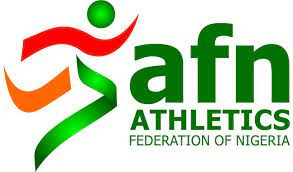Government panel has identified the prevalence of multiple taxation in the aviation industry and indicted aviation agencies and airlines of implementing charges detrimental to the sector.
In November last year, Aviation Minister, Osita Chidoka, inaugurated the Committee on Aeronautical, Non-aeronautical and Passenger Charges in Nigeria, headed by Ahonsi Unuigbe.
The committee examined the collation of aeronautical and non-aeronautical charges and their benchmarking with global best practices, especially with countries with similar regional conditions; determined factors responsible for the disparity between aeronautical (including passenger) charges among airlines, and made recommendations to the government.
Submitting its findings, the committee noted that the aviation industry is plagued with over 50 different charges imposed by the three main aviation agencies.
“In some instances, these are charged by the different agencies for the same services (a quick example is the imposition of both port charges, as well as cargo charges by the [FAAN] on the same cargo,” the committee said.
It questioned the basis for some passenger charges, describing them as “quite arbitrary.”
It analysed the computation of passenger tickets by four domestic airlines – Arik Air, Dana, Medview, and First Nation Airways.
“The analysis shows that an amount ranging from 40 per cent to 65 per cent of the airfare is hidden as fuel surcharge (also known as YQ). The computation of this fuel surcharge is unknown to both passengers and the government alike.
“Equally, this cost element has been omitted by the airlines in the computation of both VAT and Ticket Sales Charge, resulting in significant loss of revenue to the federal government.”
The committee cited a prevalence of inaccurate computation of statutory charges and non-remittance of passenger charges collected by airlines to appropriate aviation authorities.
“From the tickets analysed, some airline operators deliberately charge as high as 9 per cent of base fare as Ticket Sales Charge as against the statutory 5 per cent (expected to be remitted to the Government through NCAA).
“One has to wonder the motivation for this act, and if the statutory charge in question will be appropriately remitted to the relevant government agency or rather, constitute part of the profitability of such airlines at the expense of both the passengers and government.”
The committee also noted a prevalence of poor service quality to passengers due to the non-enforcement of the Passenger Bill of Rights by the Nigerian Civil Aviation Authority (NCAA).
“The Passenger Bill of Rights, as contained in the NCAA Act, clearly entitles passengers to several means of redress, in the event of any infraction. These rights are not known to most passengers nor are they being enforced by NCAA, resulting in a lot of passenger apathy.”
The committee recommended, among others
• That Navigational related charges be harmonised, for instance merging En-route Navigational Charge and Terminal Navigational Charge into a single charge to be called Navigational Charge.
• That Violation of Airspace Fines be merged with violation of Air Navigation Regulations.
• The scrapping of the duplication of Contractor Registration Fees by the Nigerian Airspace Management Agency (NAMA), which is also charged by the NCAA, to be centrally controlled by NCAA.
• Moderation of some of the charges deemed to be excessive, such as Cargo Vehicle Surcharge, Car Stickers, and Apron Pass.














